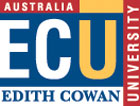Bachelor of Preclinical Foundations of Imaging Science
Bachelor of Preclinical Foundations of Imaging Science
A sonographer is a highly skilled medical imaging professional who operates an ultrasound machine to perform diagnostic medical sonographic examinations. The demand for ultrasound as a first line investigation has increased across all care settings, creating a shortage of sonographers in Australia. In this course, you’ll acquire knowledge and skills…
Categories
COURSE DESCRIPTION
A sonographer is a highly skilled medical imaging professional who operates an ultrasound machine to perform diagnostic medical sonographic examinations.
The demand for ultrasound as a first line investigation has increased across all care settings, creating a shortage of sonographers in Australia.
In this course, you’ll acquire knowledge and skills in applied anatomy, physiology and pathophysiology, application and operation of ultrasound imaging systems, ultrasound image recognition and comprehension, patient assessment, and more.
This course is part of a 4-year offering accredited by Australian Sonographer Accreditation Registry (ASAR). Prior to the first clinical placement, students will need to apply to be an Accredited Student Sonographer. Upon completion of the Bachelor of Preclinical Foundations of Imaging Science (T78) and the Graduate Diploma in Medical Sonography (T77), students are eligible to upgrade their status to be an Accredited Medical Sonographer. The Graduate Diploma in Medical Sonography will commence in 2027.
Course learning outcomes
Apply broad medical sonographic knowledge and theory in a range of clinical and practical scanning situations.
Critically analyse and interpret sonographic information to diagnose clinical conditions and factors which impact upon the diagnostic formulation.
Use creative thinking techniques to anticipate challenges and generate solutions in medical sonography contexts.
Use digital technologies and information literacy to access, evaluate and synthesise information from multiple sources.
Communicate sonographic knowledge and ideas clearly, coherently, sensitively and with independence with patients and colleagues.
Interact professionally and respectfully with patients and colleagues, demonstrating a global outlook and support for cultural diversity, including delivering culturally secure services for Aboriginal and Torres Strait Islander individuals, families and communities.
Work collaboratively to initiate social, sustainable, safe and ethical practices for positive client outcomes.
Demonstrate autonomy, accountability and judgement for own learning and quality improvement practices.
Career Opportunities
For the past 2 decades, Medical Sonography has been in the Occupations in Demand list of Australian Federal Government skilled migration program (https://www.legislation.gov.au/Details/F2019C00855) Sonography remains the most cited job vacancy in most national and international job seeking websites.
Possible future job titles
Medical Sonographer, Sonographer
REQUIREMENTS
There are various ways to meet our admission requirements, such as:
Secondary school results
Successful completion of one year of tertiary study from a recognised institution
Completed Diploma program from a recognised institution
English competency requirements:
IELTS Academic with a minimum overall score of 7.5 (with no individual band score less than 7.0), or
Pearson English Test (PTE) Academic with a minimum overall score of 72 and a minimum score of 65 in each of the four communicative skills (listening, reading, writing and speaking), or
TOEFL iBT with a minimum total score of 102 and the following minimum score in each section of the test:
• 24 for listening
• 24 for reading,
• 27 for writing, and
• 23 for speaking
EDUCATIONAL INSTITUTION
Edith Cowan University (ECU) is a large, multi-campus institution serving communities in Western Australia and internationally.ECU was awarded university status in 1991, but despite its relative youth, the University has a proud history of more than a century of service to education in Western Australia and is recognised for its teaching and learning, excellence in research, and partnerships with the community.We have more than 23,300 students, including around 18,500 undergraduates and 4,800 postgraduates. Approximately 3,600 international students attend the University, originating from 104 countries.We are a progressive University with courses developed through ongoing industry input, and employing lecturers who engage fully with their students. We’re a university that knows while knowledge is important, understanding comes from experience –experience that enables you to adapt what you’ve learned to whatever opportunities come your way. Because that’s when you do more than just survive in this world. You thrive in it.

